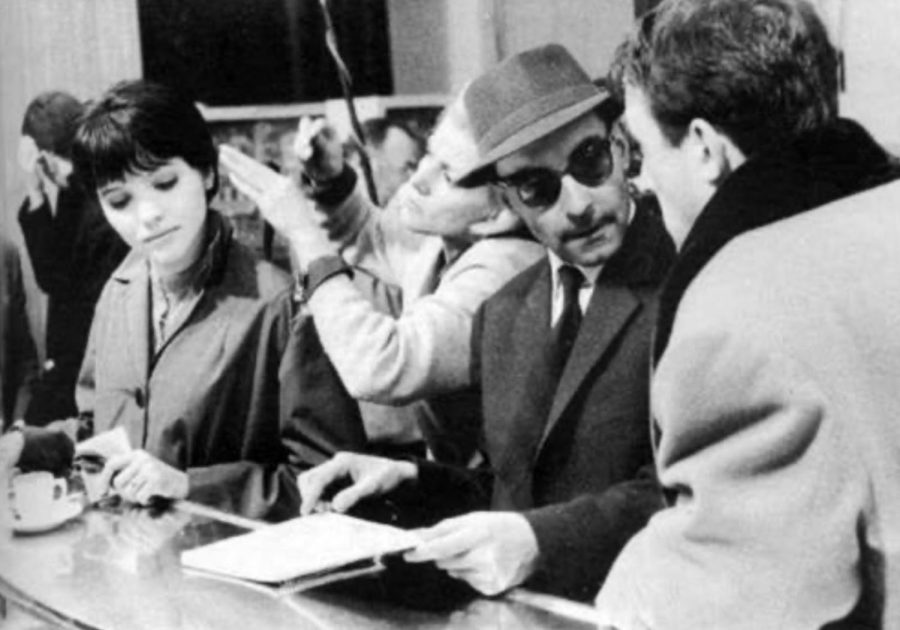I distinctly remember the emotions I felt after watching the final episodes of Breaking Bad: shock, fulfillment and appreciation. I realized that no matter what I would watch in the future, nothing would surpass how mesmerized I felt after watching this masterpiece directed by Vince Gilligan. I reflected on how the series started and I could not hesitate, but watch it again. I was astonished by the dramatic change in Walter White’s character from being a humble and kind chemistry teacher to a malevolent drug kingpin. As soon as I rewatched the series, I noticed how every detail created a marvelous set up in Walter White’s character arc throughout the events of the series, which immediately made me interested in analyzing his character arc for a research project. Therefore, for the following essay I will explore the following inquiry question: “How does Vince Gilligan use Walter White’s character development in the 2008 crime drama, Breaking Bad to illustrate the effect power has on the corruption of free will?”
To answer this question, I used the television series, Breaking Bad, as my primary source. I took notes and analyzed the series, which is important to understand the depth of Walter White’s character and his development throughout the series, which was noted through his relations through other characters and his attitude towards life, which is essential to understanding his character development throughout the series. For secondary sources, I used interviews with the author, psychological analysis, and online videos to see discussions of the characters arcs in the series to formulate an answer to the inquiry question. Validating sources consisted of making sure that the videos display accurate facts and that any information can be cross referenced as necessary.
INTRODUCTION
Walter White famously stated, “chemistry is the study of matter. But I prefer to see it as the study of change” (Gilligan “Pilot” 7:35). Walter White’s description of the basis of chemistry in the season one “Pilot” episode of Breaking Bad encapsulates the drastic changes his character will eventually go through during the series. Breaking Bad, created by Vince Gilligan, is a television series that demonstrates the character development of highschool chemistry teacher, Walter White, who partners up with former student, Jesse Pinkman, to manufacture methamphetamine. Over the course of the series, Walter White’s character and morality degrade when faced with situations where he must choose between prioritizing his family and human life or the drug empire and power. Throughout the events of the 2008 crime drama, Breaking Bad, Vince Gilligan utilizes Walter White’s superiority complex, negligence of family, and diminishing value for human life to convey his character development over the course of the series.
SUPERIORITY COMPLEX
Walter White’s refusal to accept help and charity over the course of the series represents his mentality to be superior due to not being pitied or being held to a lower standard. His superiority complex is seen in the episode, “Grey Matter,” where Walter White confronts his wife, Skyler, after Elliot mentions the health insurance policy at his company. White is infuriated and explicitly remarks, “I don’t like the way you talk about our private affairs. To people who aren’t even in our lives anymore […] He offered me a job. Kind of like some fig leaf, you know. Some face-saving bulls**t! (Gilligan “Grey Matter” 15:27).” According to Tayo Rockson, White’s fury displays his need to be better and superior to his former comrades, which is exemplified by his refusal to receive financial aid from former business partners, who were willing to pay for his cancer treatment through a job offering (3). White immediately rejects the offer as he believes it was a way of pitying him and cheaply compensating his shares of the multi-billion dollar company White sold to them for five thousand dollars. He refuses to be pitied, thus leading to a psychological process of denial and anger, which results in negligent decisions that leads White to find illegal sources of revenue. White uses knowledge of chemistry to produce methamphetamine and effectively compromises his morality as a result of his ego. White’s refusal illustrates one of his many insecurities, regarding financial security, which is seen in his flashbacks of his time at “Grey Matter,” and inhibited him from accepting the needed help due to a deeply rooted grudge regarding his share at the company. This event is directly related to Walter White’s greater character development due to his need to be better, becoming a principal motivator to continue committing heinous acts and betraying both his family and his community in search for monetary gain from his production of methamphetamine.
FAMILIAR NEGLIGENCE
White’s increasing negligence for his family over the course of the series demonstrates his true priorities, being the production of methamphetamine and the expansion of his illegal drug empire. In the episode “Mandala,” Walter White has to make a difficult decision and choose between performing an important drug deal and securing millions of dollars or being present at the birth of his daughter, Holly. In this episode, White realizes that his partner, Jesse, is unable to complete the drug deal and deliver the methamphetamine to Gus Fring, which is coincidentally on the same day and time that Skyler scheduled her cesarean section to give birth to her daughter. Even though the operation was scheduled and White knew both events conflicted, he chose to complete the drug deal. According to Andy Peters, his decision was important and marked a change in Walter White’s character to begin to care more about money than his family, even though he had already generated enough money to cover his cancer treatment (16). The excerpt implies that White’s greed began to drive him instead of his duty to be a present father and husband. His greed, although masked as fear for his life, is an excuse for producing more methamphetamine in the future. White’s increasing neglect is seen not only in the amount of time White spent in the drug lab, but also in his secrecy and lack of consideration for his wife during her early days of motherhood. Even further, White was negligent to his family as he ignored most of his duties as a father and endangered his family on several occasions by placing them in the crossfire between a cartel war caused by his presence in the Los Pollos Hermanos corporation. Also, his decision to involve Skyler in the money laundering scheme proves his negligence as he willingly involved her in a massive criminal scheme. White had already accumulated millions of dollars by this point in the series, which was more than enough to cover both cancer treatment and college funds for his children. Walter White’s negligence towards his family contributes to his overall character arc due to actions like these becoming the norm in his twisted mind, which contributes to his personal metamorphosis into a malevolent character whose principal concerns are money and power.
DEVALUATION OF HUMAN LIFE
White’s devaluation of human life throughout the series demonstrates his moral corruption due to the negligence for other’s safety and well-being. In the fourth season of the series, White constantly manipulated others for personal benefit, which is exemplary in episodes “Crawl Space” and “End Times,” where White influences Jesse into turning against Gus and plotting his assassination to become Albuquerque’s next drug kingpin. White’s intricate plan included poisoning Andrea’s son, Brock, with the plant, lily of the valley, which would manipulate Jesse into thinking that Fring poisoned Brock to frame Walter and have him turn against White to become the next “cook.” White’s plan took advantage of both Jesse’s erratic and impulsive personality and the life of an innocent child, who were both put at risk for one purpose, greed. White’s greed is evident when Jesse exclaims, “You wanna know what he did? You wanna hear about it? He poisoned a little kid. An 8 year old boy. Just because, you know. As a move […] He can’t keep getting away with it!” (Gilligan “Rabid Dog” 22:25). Jesse’s anger demonstrates White’s utter negligence for human life as he attempted to murder an eight year old child, who had nothing to do with the drug industry to secure White’s position as drug kingpin in the Albuquerque region.
White formulated the plan to save his life; however, it also demonstrated his moral corruption throughout the series as he relentlessly poisoned an innocent child, while earlier in the series, he was hesitant to murder a drug dealer who had previously attempted to kill him. White’s change in mentality throughout the series exemplifies his transformation into a malicious killer who used other’s lives for personal gain instead of valuing the people around him, which is exemplary in his role in the death of Jane, Gale Boetticher, and the 300 other people he helped murder (McCluskey 2). White’s character arc demonstrates an increase in greed, which justified his need to murder others to preserve his own life, exemplifying his transition into the Heisenberg persona as he no longer felt any hesitation before risking human life. The devaluation of human life represents Walter White’s character development as by this point in the series, White had no hesitation in the use of murder to serve his own purpose, representing how his moral values had become completely twisted from the beginning of the series.
CONCLUSION
Walter White’s negative character development is seen in his superiority complex, negligence of family, and devaluation of human life, which can be seen throughout the series through the acquisition of power and control over the illegal drug industry in Albuquerque. Throughout the series, White transitions from an empathetic and family driven chemistry teacher to a vicious drug kingpin as a result of the events of the series, which molded him into the personification of evil and corruption, Heisenberg. His transition can be seen throughout the series when he refuses help from others due to an overwhelming superiority complex and his neglect towards his family due to prioritizing the production of methamphetamine. Also, his value for human life diminishes throughout the series as he uses the lives of others as tools for manipulation to benefit from the weaknesses of others for personal gain. White’s character development is reflected in the real world through the themes of corruption, which are present in industries and bureaucracies all over the world, being a direct result of the overexposure to overwhelming power and control that sparks greed and a warped sense of morality in society (Tobore 4). Just as chemistry studies change in the scientific world, power evokes change in society as it has consistently warped the mentality of humanity since the dawn of time, which is accurately depicted in Walter White’s regression throughout the infamous crime drama series, Breaking Bad.
Works Cited
Breaking Bad. Created by Vince Gilligan, performances by Bryan Cranston, Aaron Paul, and Anna Gunn, Sony Pictures Television, Netflix, 2008–2013.
McCluskey, Megan. “‘Say My Name’: The 10 Biggest Turning Points in Walter White’s Breaking Bad Transformation.” TIME, 20 Jan. 2018, time.com/5094038/breaking-bad-walter-white-transformation.
Peters, Andy. Beyond Good and Bad: The Linguistic Construction of Walter White’s Masculinity in Breaking Bad. University of Michigan, 2015, deepblue.lib.umich.edu/bitstream/handle/2027.42/112128/andypet.pdf.
Rockson, Tayo. The Psychology of Popular Characters: Breaking Bad’s Walter White. 26 Aug. 2024, www.linkedin.com/pulse/psychology-popular-characters-breaking-bads-walter-white-tayo-rockson-afiue.
Tobore, Tobore Onojighofia. “On Power and Its Corrupting Effects: The Effects of Power on Human Behavior and the Limits of Accountability Systems.” Communicative & Integrative Biology, vol. 16, no. 1, Aug. 2023, https://doi.org/10.1080/19420889.2023.2246793.

















